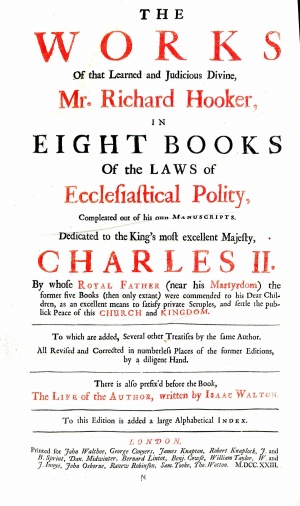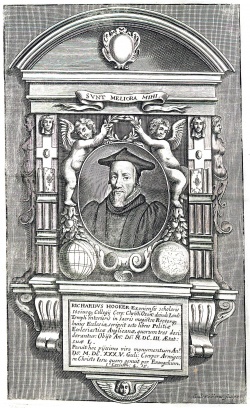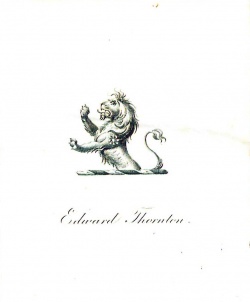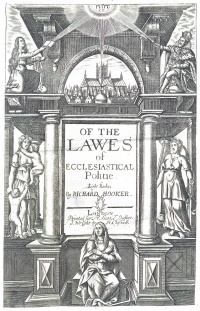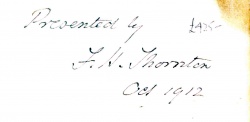Difference between revisions of "Works of that Learned and Judicious Divine, Mr. Richard Hooker"
Lewarkentin (talk | contribs) (→See also) |
Lewarkentin (talk | contribs) |
||
| Line 33: | Line 33: | ||
View the record for this book in [https://catalog.swem.wm.edu/law/Record/3621021 William & Mary's online catalog.] | View the record for this book in [https://catalog.swem.wm.edu/law/Record/3621021 William & Mary's online catalog.] | ||
| − | + | ||
| − | [[File: | + | [[File:HookerWorks1723HalfTitle.jpg|left|thumb|200px|<center>Half-title</center>]] |
==See also== | ==See also== | ||
| Line 44: | Line 44: | ||
==References== | ==References== | ||
| + | [[File:HookerWorks1723Inscription.jpg|right|thumb|250px|<center>Inscription, front free endpaper.</center>]] | ||
| + | |||
<div style="overflow: hidden;"> | <div style="overflow: hidden;"> | ||
<references/> | <references/> | ||
Revision as of 10:28, 15 September 2015
by Richard Hooker
| The Works of that Learned and Judicious Divine, Mr. Richard Hooker | |
|
Title page from The Works of that Learned and Judicious Divine, Mr. Richard Hooker, George Wythe Collection, Wolf Law Library, College of William & Mary. | |
| Author | Richard Hooker |
| Editor | John Gauden, with some corrections by John Strype |
| Published | London: Printed for John Walthoe, George Conyers, James Knapton, Robert Knoplock, J. and B. Sprint . . . [and 9 others] |
| Date | 1723 |
| Language | English |
| Pages | [4], lxxxviii, 518 [i.e. 520], [8] |
| Desc. | Folio (40 cm.) |
| Location | Shelf A-5 |
The Laws of Ecclesiastical Polity was Hooker’s response to a rift within Protestantism—between Hooker’s Anglicanism and English Puritans agitating for a reform of church government toward the Calvinist model,[7] characterized by an exclusive fidelity to scripture[8]—and also to what he saw as the Catholic Church’s theological error of elevating "tradition" to the same importance as scripture.[9] Hooker articulated a three-fold theory of ecclesiastical government that emphasized deference to scripture, followed by church tradition. Where those were inadequate, answers were to be sought in human reason.[10]
The Laws of Ecclesiastical Polity has been lauded as the Enlightenment’s "...first glimmering...dawn,"[11] and profoundly influential upon “...(both directly and through Locke), American political philosophy in the late 1700’s."[12]
Evidence for Inclusion in Wythe's Library
Listed in the Jefferson Inventory of Wythe's Library as Hooker’s Ecclesiastical polity. fol. and given by Thomas Jefferson to his son-in-law, Thomas Mann Randolph. We do not have enough information to conclusively identify which edition Wythe owned. George Wythe's Library[13] on LibraryThing indicates this without naming a specific edition. The Brown Bibliography[14] lists the 1723 edition from London based on the copy Jefferson sold to the Library of Congress.[15] The Wolf Law Library followed Brown's suggestion and purchased the London 1723 edition.
Description of the Wolf Law Library's copy
Bound in contemporary Cambridge-style panelled calf, newly rebacked. Signed "F.H. Thornton, Oct. 1912" on the front free endpaper and includes the bookplate of Edward Thornton on the front pastedown. Purchased from Cobnar Books.
View the record for this book in William & Mary's online catalog.
See also
References
External Links
Read this book in Google Books.
